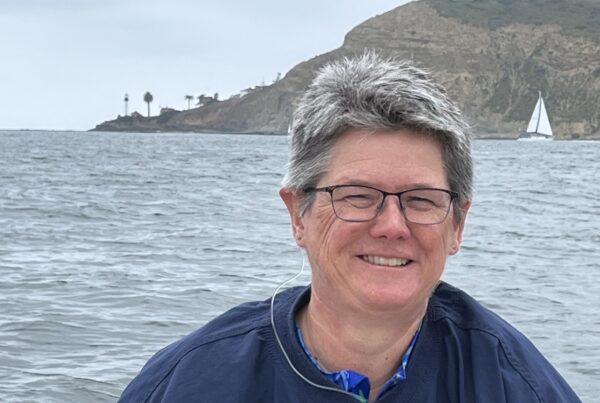I was brought up on mom, apple pie, and rhetorical questions like, “Do you believe everything you hear?” or “If everyone else jumped off a bridge, would you jump too?” I was brought up in a neighborhood of Dutch immigrant families and for a long while I accepted without question their reputation for saying, “Yah, yah.” Yet before I was half-grown, it dawned on me how much more often I actually heard the words, “Nah, nah.” Skepticism was respected and endorsed by these people who, incidentally, also taught me how to have faith and believe. They did not see any inconsistency in those positions.
It still puzzles me. How do we know when to be skeptical of a group’s direction and when to support it? What happens when loving others conflicts with our convictions? How do we know what’s right?
Our family tried to solve that question over coffee. Lots of coffee. Sometimes loudly. (Feel free to ignore our model if it goes against your better judgment.)
Today we use the word partisan to describe people who adamantly align themselves with a group’s agenda without reservation. It’s seldom a compliment. No matter how objective we make our points, partisan views can quickly become personal. (I can validate that claim by measuring my own blood pressure.) Still, we keep the faith because, for many of us, these partisan positions are just that—expressions of our Christian faith.
Strongly defended partisan opinions get a lot of press today in our society, but on a smaller scale, we regularly make decisions on the basis of our convictions, don’t we? After all, that’s what you have to do when you live in the real world, the same real world where Jesus lived among people like us.
When people came to Jesus for help, their desperate requests quickly put a strain on the religious traditions and social norms of their time, practices which were firmly based on God’s Word. In these situations, it seems like loving others conflicts with commonly held convictions. We know this because before agreeing to help, Jesus often begins by explaining the specific exceptions they’re asking him to make. He wants to make sure they understand what’s at stake.
At a wedding party, his mother Mary asks him for wine to prevent a family’s embarrassment. Not my time, says Jesus.
When a Roman centurion asks him to cure his servant. Do you expect me to come to your place? Jesus asks before responding.
A Canaanite woman begs for her daughter’s mental health, and Jesus questions whether she qualifies to receive that benefit on the basis of her nationality.
In other words, Jesus says, There’s a rule for that. Yet—and here’s the heart of it—in each of these instances while people who asked for help are reeling and wondering where to turn next, Jesus generously acts to give them relief and hope. Love overrides the rules. Or, as Jesus himself once said about God’s laws, he fulfills them in new ways.
When religious leaders step up to confront his decision to heal on the Sabbath, Jesus clarifies what people of faith should expect of one another: “You study the Scriptures diligently because you think that in them you have eternal life. These are the very Scriptures that testify about me” (John 5:39, NIV). Jesus himself is God’s arm reaching out to save them. This is the story of salvation that Christians have in common. But then Jesus presses further, to the heart of the issue. Belief is not primarily about understanding or endorsing—after all, these leaders have mastered those rituals, claiming deep roots in the Abraham clan and taking careful pains to vet newcomers like John the baptizer. No, belief is not functional until it’s infused with God’s love. That’s essential and yet, with all their careful scrutiny of God’s purposes, they’ve missed it. Jesus adds, “I know you. I know that you do not have the love of God in your hearts” (v. 42).
Typically, when a situation challenges my beliefs, my first impulse is to stick to my party-line. I feel justified doing that because my practices are based on the Bible and church teachings. I think they are right. I’m skeptical when asked to question what already seems settled. Sometimes I think we assume that the right choice was more clear-cut in generations past. Or that, for Jesus, opposition was primarily based on unbelief. Yet Jesus lived within a culture and religion with laws and strongly-held personal convictions like we do. While he acknowledged these up front, he repeatedly made it clear that faithful choices are not settled until they measure up to the standard of enacted love.
I met a friend for lunch the other day and in the middle of our conversation about faith and the condition of the world, I sighed and said, “It’s complicated.” Immediately she disagreed, “No, no, it’s not complicated. It’s simple. It’s just hard to do.”
I know a man with high standards for faith and practice. Throughout his long life, he denied himself a number of things based on principle—no eating out or shopping on Sundays, no playing cards that could be otherwise used for gambling, no accepting gratuities from aspiring business associates. Yet, this man made payments toward his daughter’s seminary tuition despite his reservations about women in ministry. Weighing his scruples again, he made the decision to support another daughter when she was getting a divorce. Because he loved them. Simple faith. Hard choices.
When debating the controversial issues of our own time, it’s risky to set our Cup of Certainty atilt on a rickety end table where it might spill or worse. On a quiet day, we might just hold onto that cup or fuss over our options, propping up an uneven leg or shifting a magazine. But when we see someone suddenly come stumbling toward us, is our first thought to steady the cup or to catch the person?
Love breaks the fall.
Shirley Heeg
Shirley Heeg is a woman of faith who has served as a minister to United Church of Christ and Reformed Church in America congregations in both Michigan and Minnesota. Retired, she and her husband, John, live mid-knuckle on Michigan’s pinky finger, in the same woodland home where they once raised their four children and where they welcome them back with their families as often as possible. These days she is a guest preacher and writer, and hopes to be a good friend.



